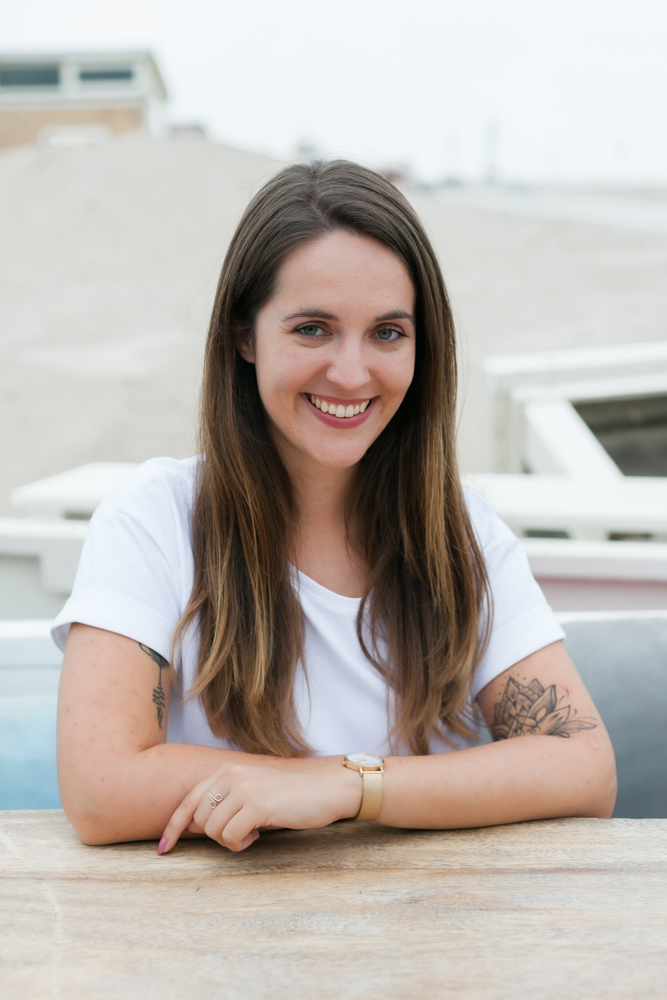Before she became a ranked self-help podcaster, Cait Pearson learned a thing or two about what it takes to create a successful podcast. From defining her target audience to creating valuable podcast content, Cait has crafted a podcast that perfectly aligns with her passions and purpose in this world. Not to mention the positive impact it has on her bottom line.
I’m excited to have another amazing guest on the show to share with you all of her insider tips so you can also create a successful, profitable podcast. Let’s get started!
Links
Visit https://caitpearson.com/ for more info
The She’s Hungry Podcast has unfortunately been discontinued
Follow @she_runs__wild on instagram
Follow @caitpearson on Twitter
About Cait
Cait is an accountability coach and goal strategist. She started out in her dream job as a food photographer before dropping a self-development podcast that eventually ranked #118 in self-help on iTunes. She went on to host a couple of events and even spoke on a few stages. All while making a profit her first year in business.
An expert in all things multi-passionate, Cait helps womxn drop the excuses, build their vision, create a plan that works for them, and execute it like a boss.
Why Cait started a podcast
When Cait moved across the country to Portland, she didn’t know a single person. She wanted to build connections that were deeper than what you find at your average networking events, but all she found were hollow transactional experiences. Instead of trading business cards, Cait wanted to find other entrepreneurs who were passionate about making an impact in the world.
Cait started writing a blog as a way to vent her frustration with the shallow entrepreneurial world she found herself in, but rather quickly learned that writing wasn’t a natural talent. This nudged her to explore podcasting, which was a much better alignment as she has always been passionate about speaking and storytelling. Podcasting allowed Cait to be vulnerable but still offered a layer of protection that YouTube doesn’t provide. With a podcast, you can show up in your sweats, with a glass of wine, surrounded by dirty laundry, but no one will know. The value of your content is not diminished one bit.
The importance of identifying your target audience
According to Cait, one of the most crucial parts of creating a successful podcast is identifying your ideal listeners. Podcasting is one of the only long-form content types available. With a podcast, you have the opportunity to connect with people and make a real impact in a way many other vehicles don’t allow. Speaking directly to your listeners, you can share your expertise, teach a skill, share your story, and most importantly, build a relationship with your listeners.
Before you ever make a sale, your potential client must first know, like, and trust you. The way you achieve that is by creating value for them. If you aren’t providing value, your listeners will not return, you won’t have the opportunity to build trust, and you will not make the sale. In order to create value, you have to know who is receiving it and what they find valuable. If you want to learn more about identifying your target audience, read this blog post written by Cait.
The power of keywords
Many podcasters miss the huge opportunity of keywords and the power of proper SEO. Cait has never paid for ads or promotions and was able to be ranked on Apple because she had done the proper work on the back end through SEO. Instead of trying to reinvent the wheel, Cait lets the search engines do the work for her in two ways. First, she makes sure her episode SEO is on point, loaded with keywords. Second, she uses the power of search engines to tell her exactly what her audience wants to hear from her.
Cait’s areas of passion are accountability coaching and podcasting. Those are the only two topics her podcast needs to focus on. Instead of racking her brain to come up with new episode topics every week, she goes onto Pinterest and Facebook groups and starts searching for the terms “accountability” and “podcasting.” Immediately, she finds a ton of questions people are asking about that relate to her passion areas and she has new episode topic ideas in minutes.
Another tip when doing market research is to find people that are in your niche. Check out what content they’ve been creating, what’s been getting good audience response, and what the audience is asking them to create. Social media is a double-edged sword. Use it as the tool it is and make it work for you so you don’t have to work so hard. To use social media effectively, though, you have to know your target audience and be searching for keywords where they are hanging out.
How Cait finds show guests
Cait uses several avenues to find guests for her show. Sometimes she reaches out to people that she admires on social media and others come from referrals. Now that the show has gained some traction of its own, she regularly has people reach out to her requesting to be on the show. For fellow podcasters, Cait recommends creating an application that lets you filter these requests and ensure that the guest is a good fit for your audience.
For anyone who is thinking about starting a podcast or wants to have guests on for the first time, start where you are and let that be okay. It’s easy to be overly excited about having guests, but it’s more important to have the right guest that aligns with your show and can bring value to your audience. Your audience is precious, their time is precious, and you must make sure you are providing them value with your guest episodes. To find your ideal guest, you first have to define your target audience and what they respond to.
The value of building a community
One thing Cait makes very clear both in her business and on her podcast is how much she values personal connections. It’s never too early to start telling people about your podcast because the sooner you let people in on what you’re planning, the more committed they are to your journey. Before you launch, run a poll asking them what show title they like better. Go live on Instagram to find out what they want to hear about on your show.
Involving your audience at this stage allows them to help create your show. Now they are invested in the success of your podcast and are more likely to listen. Building your community is huge because they are going to help support you and encourage you through the launch. Additionally, bringing your audience into the process so early holds you accountable. Once it’s out there in the world, people are going to ask you about it and keep you committed. It’s a win-win to put yourself out there, no matter how terrifying it can feel.

